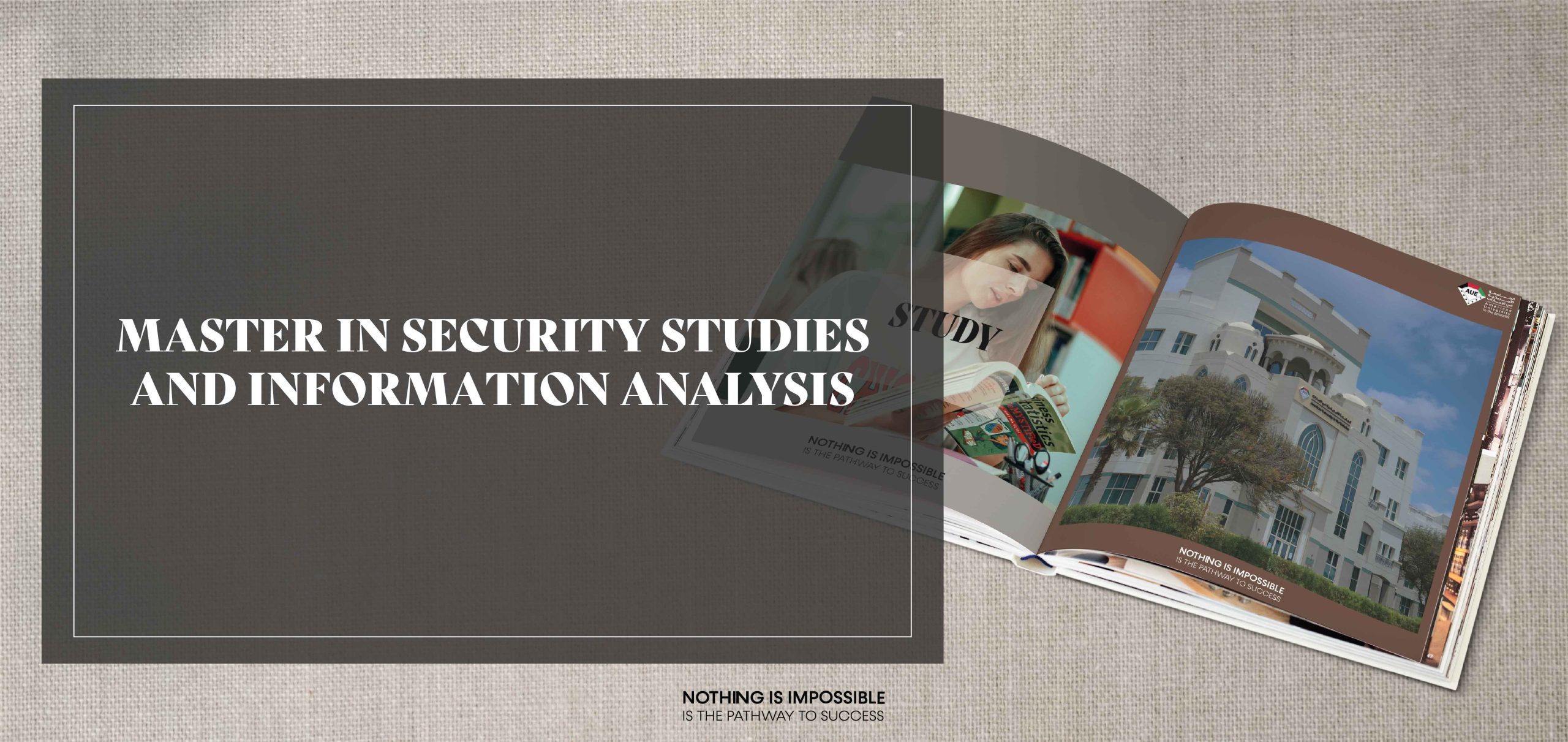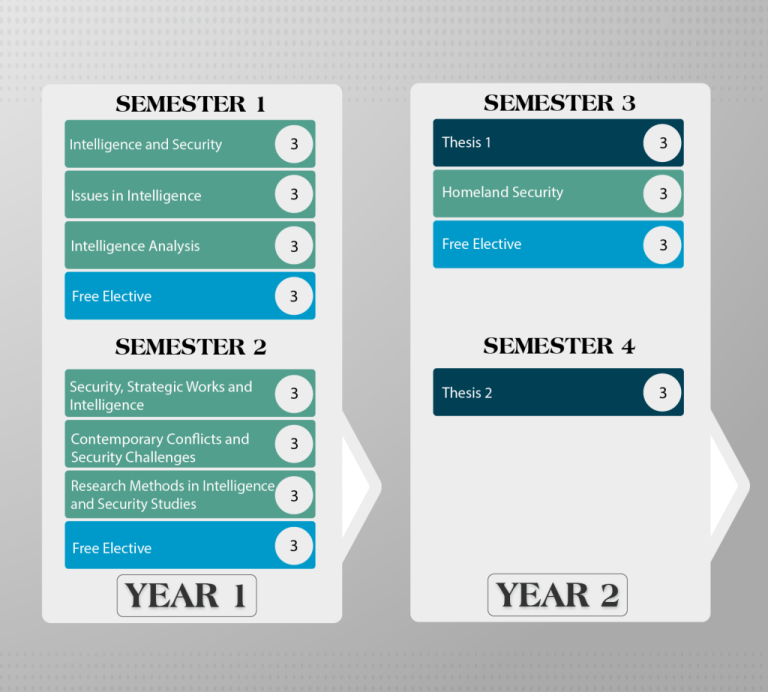
- Overview
- Program Structure
- Accreditations
- Faculty
- Admission
-
Duration
2 Years
-
Classes
Weekday Morning Weekday Evening
-
Fees
Tuition (One Semester) ……… Approx. 40,000 AED
One academic year is two semesters
Admission (One Time) ……… 3,500 AED
About Program
Become a master of understanding and analyzing security threats with our Master in Security Studies & Information Analysis program. Dive into the realms of intelligence analysis, threat assessment, risk management and security policy development. Gain the skills to analyze complex information, detect patterns and provide actionable insights to decision-makers. With this program, you will be well-prepared for an exciting career working in an intelligence agency, defense organization, research institution or private security firm. Join us and become a trusted expert—safeguarding individuals, organizations and nations from emerging security challenges.
Program Goals
- To develop graduates who possess a regional focus with an international framework of Security and Intelligence.
- To provide educational opportunities to students at the graduate level through a carefully planned and implemented program of study.
- To provide students with instruction of both theoretical and practical aspects of Security and Intelligence Studies.
- To provide and maintain learning resources and an environment conducive to graduate student learning, scholarly research, and quality teaching.
- To ensure graduating students are equipped with the appropriate knowledge and skills, as recognized by the current international norms and standards.
Program Learning Outcomes
- Define and demonstrate the theory, history and contribution of the discipline of intelligence and security.
- Appraise collected data/information using a variety of analytic techniques and methodologies to produce original and advanced research in the Security and Intelligence field.
- Contextualize the principles of Security and Intelligence to evaluate intelligence and security threats.
- Apply critical thinking and innovative problem-solving skills for analyzing and reporting Security and Intelligence issues.
- Acquire the necessary skills to manage intelligence structures, functions, processes and practices in the UAE and GCC context.
Program Structure
Course Category
Core Courses
Elective Courses
Thesis 1
Thesis 2
Total (Excluding Bridging Courses)
Total Number of Courses
7
3
1
1
12
Total Number of Credit Hours
21
9
3
3
36 Credit Hours
- Core Courses
- Free Electives
- Thesis
This course examines the history, principles, concepts, functions and methods used in collecting intelligence information. The main emphasis in this course is placed on the collection, analysis, interpretation and the use of intelligence.
This course also recognizes and explores the evolving intersection between intelligence and national as well as global security.
This course will examine the recent developments and changes in intelligence systems and assesses the different ways in which persistent and emerging issues in the field are discussed and implemented in achieving policy objectives of the Nation-States.
This course also recognizes and explores the evolving intersection between intelligence and national security.
The course examines and analyzes the similarities and differences between intelligence and strategic intelligence. In this regard concepts and theories will be explained and analyzed such as the content of intelligence and the threats revealed by intelligence information. The most important aspects will be the assessment, evaluation, interpretation and extrapolation of the information gathered from different sources. In particular, the course focuses on strategic Intelligence will be related to the concept of tactical intelligence.
Recommended Study Plan

Accreditations
The American University in the Emirates is licensed by the UAE Ministry of Education – Commission for Academic Accreditation | caa.ae

Prof. Chahine A. Ghais
Professor / Dean

Prof. Dusko Tomic
Professor / Program Director - Security And Strategic Studies

Dr. Eldar Šaljić
Associate Professor / Program Director - Security Studies And Information Analysis

Dr. Mohamed El Yattioui
Assistant Professor / Program Director - Diplomacy
Graduation Requirements
For graduate degree completion, graduate students must satisfy the following requirements:
- Earn a minimum CGPA of 2.00 on a scale of 4.00.
- Successfully complete all courses as described in the study plan.
- The Degree Completion requirements must be met within the timeframe of the program.
- Successfully complete the “Thesis” course.
Joining the Program
- Fall Semester
-
September
-
Spring Semester
- January
- Summer Semester
- May






